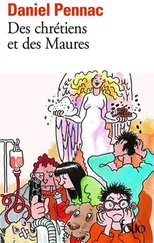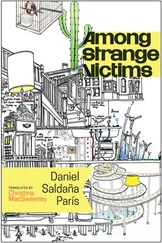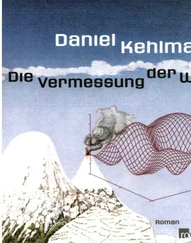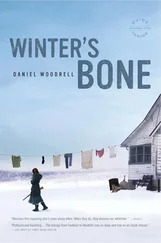And that’s what he’d said to Sibylle. He hadn’t seen her for four years, she’d lost weight, and she looked exhausted. He’d told her what he’d told Remling: Bhagavad Gita, Confession, no cell phone, time out, hand of God. He’d talked about the crisis that nobody could have foreseen, he’d talked about the presbytery and about the divorce. He’d talked about the fact that he would never again be a complete human being since the day his twin brother had died. Sibylle had asked if Laura was okay again, healthwise, and he’d said, Thank God, yes! And now he was going to move in with her. His income was down to the bare minimum it took for sheer survival, he had no means to pay for an apartment of his own, but he absolutely had to get out of the presbytery, no matter what. It was no place for a pious human being of any stripe.
Eric bent down and scooped up a handful of snow. It was still so powdery that it was almost impossible to shape it into a ball. He wanted to hurl the crumbling lump at somebody, but couldn’t see any particular target. Marie suddenly seemed too grown-up to have snowballs thrown at her, and he didn’t want to target her disgusting boyfriend either — if he hit him in the face, it would be really embarrassing. And he couldn’t snow-bomb Martin anymore either, now, when he was wearing his priest’s outfit. So he took aim at the acolyte.
He hit him in the back of the head, and the snow dusted itself into a halo. The young man spun around, with the momentary look of an animal on the attack, then his face softened into an effortful smile.
There was something odd about him. The first time he’d come into the presbytery and met Eric’s eyes, he’d begun to giggle hysterically. He still could barely talk to Eric without turning pale and beginning to stutter. Eric guessed he must have been commissioned by someone to spy on him, but it just didn’t matter anymore. He was under the protecting hand of God.
They went into the church. The organ advanced triumphantly from one chord to the next, and the congregation was bigger than before. The five old women who always came were here, along with the friendly fat man, the sad young woman, and Adrian Schlueter. But this time there were also a few old friends of Ivan’s, including a Belgian painter with a pointed beard and a silk shawl, and a cousin none of them had seen in ages, and Eric’s secretary Kathi, who was now installed at the Eulenboeck Trust to oversee merchandising. Martin’s mother was here, and next to her, upright and calm, was Prelate Finckenstein. In the front row, face hidden behind dark glasses, maybe out of grief and maybe out of a desire to pass unrecognized, sat Ivan and Eric’s mother.
Ivan had been missing for four years now, and in the previous week he had officially been declared dead. Eric had insisted on this Mass, he had begged, cursed, and finally threatened to intervene with the bishop. Martin had defended himself as long as he was able. Ivan had never been baptized, and besides which, Masses for the souls of the dead were absolute rubbish — why would the Almighty, All-Knowing God change His view of a single human soul because that soul’s survivors sang a few songs? Or, to put it better, any Mass for the dead would have been rubbish if there really had been an all-knowing God and any sense in theology. Which was why he’d finally given way.
The congregation rose to its feet. “The Lord be with you,” said Martin. Since he had come to understand that faith was never going to alight on him, he’d felt free. Nothing was ever going to help: never in this life was he going to be thin, and never in this life was he going to escape the power of reason.
“And with your spirit,” murmured the congregation.
Martin spoke about his brother. He wasn’t a novice, so the sentences flowed freely, without his having to think about them: Ivan Friedland had lived and painted, he had researched, he had seen much in the world, because the act of seeing was his passion. He had behaved badly to no man, and he had dedicated his work to a greater artist, whose authority he had been the first to acknowledge. Much was to have been expected of him, but an untimely fate had cut short his life, only God knew how. He would never come back.
Martin folded his hands. The acolyte took a ragged breath, rubbed his face, made little coughing noises, and sniffled in a way that could drive anyone mad. The boy was doing his best, but he just wasn’t suited for this job, someone had to find another solution for him. Perhaps Eric could help, he still had all these connections.
As Martin heard himself speak, he closed his eyes. He imagined the snowflakes falling outside. If the weather report was to be believed, they were going to keep falling for days, big machines would be working at full power to clear the streets, chemicals would be sprayed around with abandon, but the snow would keep falling on the pavements, on the parked cars, on the gardens, trees, roofs, and antennas. For a few days to come, the world would be a thing of beauty. He noticed that he was getting hungry again.
“And now,” he said, “the Profession of Faith.”
Daniel Kehlmann was born in Munich in 1975 and lives in Berlin and New York. His works have won numerous prizes, including the Candide Prize, the Doderer Prize, the Kleist Prize, the Welt Literature Prize, and the Thomas Mann Prize. His novel Measuring the World was translated into more than forty languages and is one of the biggest successes in postwar German literature.
A NOTE ABOUT THE TRANSLATOR
Carol Brown Janeway’s translations include Bernhard Schlink’s The Reader and Summer Lies , Jan Philipp Reemtsma’s In the Cellar , Hans-Ulrich Treichel’s Lost , Zvi Kolitz’s Yosl Rakover Talks to God , Benjamin Lebert’s Crazy , Sándor Márai’s Embers , Yasmina Reza’s Desolation , Thomas Bernhard’s My Prizes , and Daniel Kehlmann’s Measuring the World, Me and Kaminski , and Fame .











